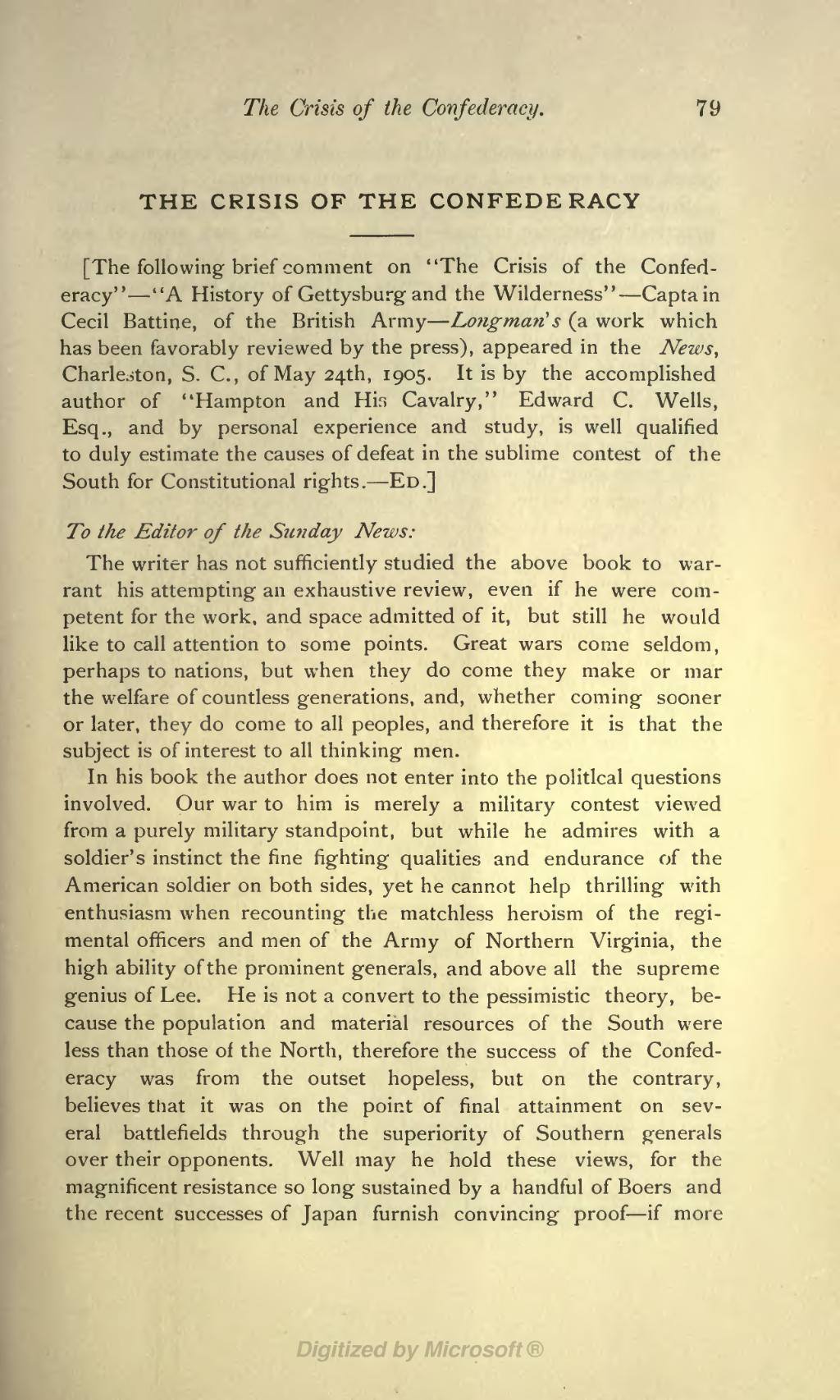The Crisis of the Confederacy. 79
THE CRISIS OF THE CONFEDERACY
[The following brief comment on "The Crisis of the Confed- eracy" "A History of Gettysburg and the Wilderness" Captain Cecil Battine, of the British Army Longman 's (a work which has been favorably reviewed by the press), appeared in the News, Charleston, S. C., of May 24th, 1905. It is by the accomplished author of "Hampton and Hir> Cavalry," Edward C. Wells, Esq., and by personal experience and study, is well qualified to duly estimate the causes of defeat in the sublime contest of the South for Constitutional rights. ED.]
To the Editor of the Sunday News:
The writer has not sufficiently studied the above book to war- rant his attempting an exhaustive review, even if he were com- petent for the work, and space admitted of it, but still he would like to call attention to some points. Great wars come seldom, perhaps to nations, but when they do come they make or mar the welfare of countless generations, and, whether coming sooner or later, they do come to all peoples, and therefore it is that the subject is of interest to all thinking men.
In his book the author does not enter into the political questions involved. Our war to him is merely a military contest viewed from a purely military standpoint, but while he admires with a soldier's instinct the fine fighting qualities and endurance of the American soldier on both sides, yet he cannot help thrilling with enthusiasm when recounting the matchless heroism of the regi- mental officers and men of the Army of Northern Virginia, the high ability of the prominent generals, and above all the supreme genius of Lee. He is not a convert to the pessimistic theory, be- cause the population and material resources of the South were less than those of the North, therefore the success of the Confed- eracy was from the outset hopeless, but on the contrary, believes that it was on the point of final attainment on sev- eral battlefields through the superiority of Southern generals over their opponents. Well may he hold these views, for the magnificent resistance so long sustained by a handful of Boers and the recent successes of Japan furnish convincing proof if more
